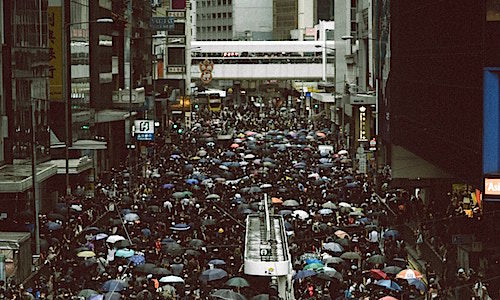Top 3 Ways Hong Kong Protests Influenced Finance in 2019
Hong Kong’s descent into a politically fuelled state of chaos in 2019 shocked the financial sector in profound fashion beyond just the bottom line, ranging from the cultural to the operational. Here are 3 ways bankers’ lives were impacted.
White-Collar Dissent
In the last few months, workers from Hong Kong's central business district – the financial sector, in particular – have been steadily remaking their reputation from what was previously no different from that of other global hubs: staunchly apolitical and commercially pragmatic. The surge in anti-government sentiments has pushed white-collar workers of all demographics to support the movement through various non-violent means.
In addition to wearing symbolically pro-democracy face masks to work (mostly outside of offices) and participating in citywide strikes, an increasing number of protests are being held especially during the already stressful lunch hour in the densely packed district.
And what was initially seen as an unprecedented act of dissent by means of a flash protest in August this year had quickly escalated to heavy police confrontations in a matter of months, which involved teargassing and other methods to quell resistance. This has done little to discourage anti-government sentiments and, by one estimate, has led to as much as 80 percent of staff in some Hong Kong-based financial firms to participate in protests.
- Page 1 of 3
- Next >>






















